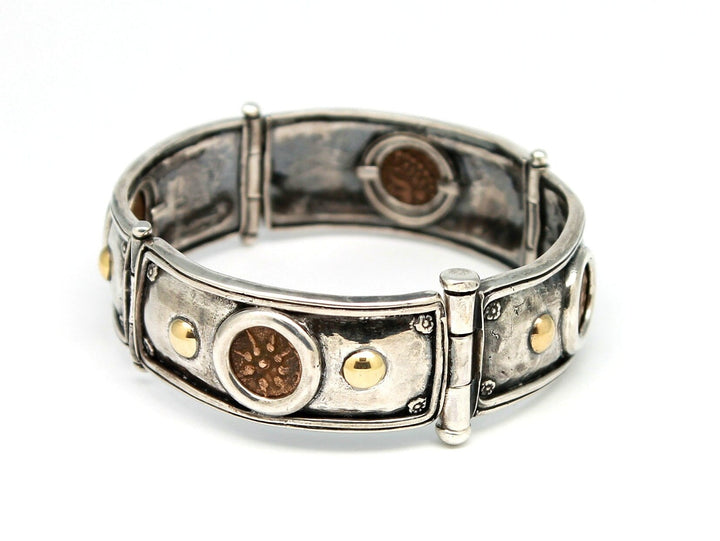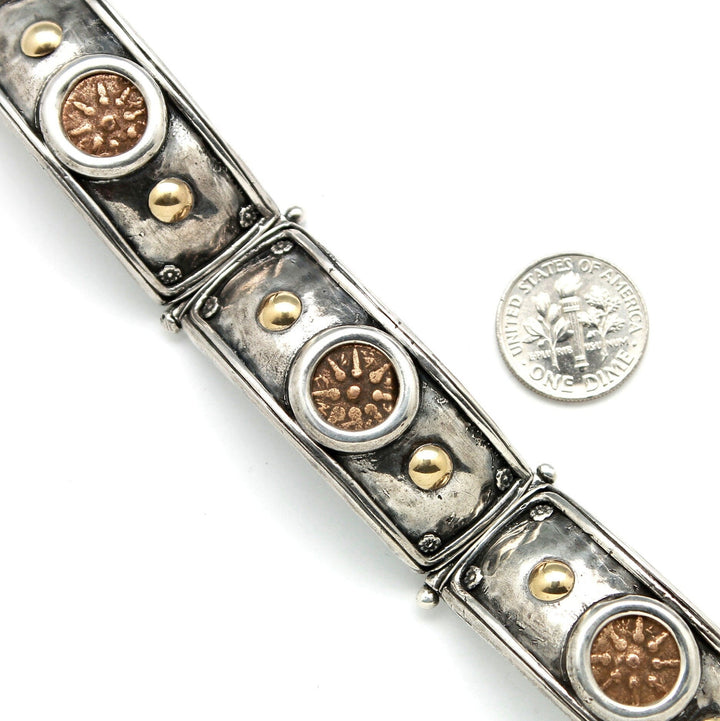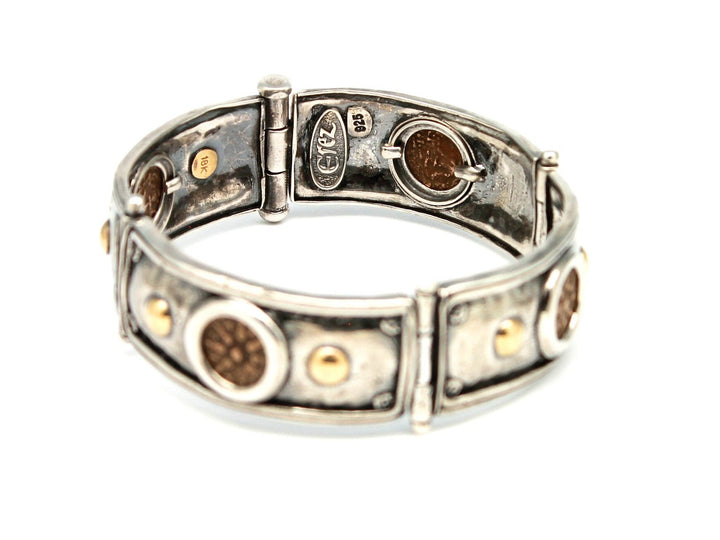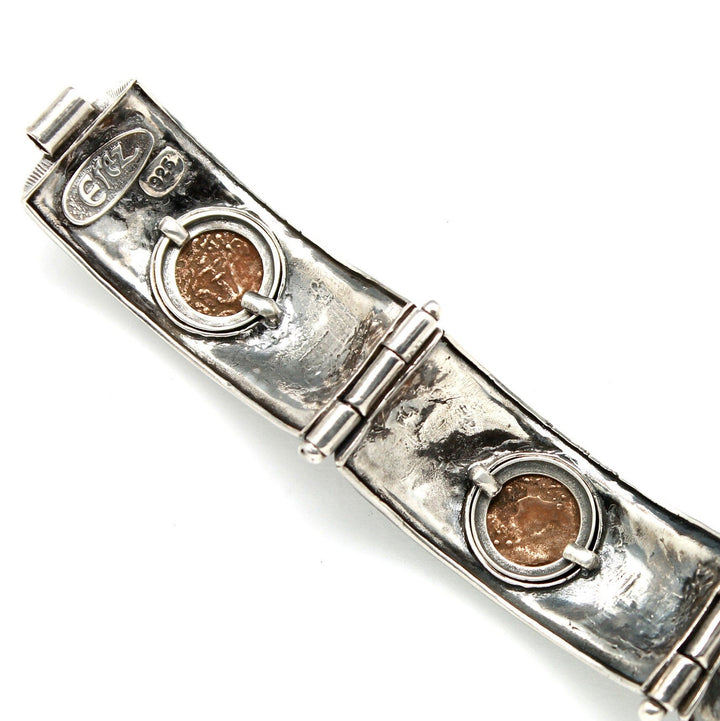Free Shipping On U.S. Orders Over $100
Contact:erezllc@gmail.com | (916) 769-9256
Denomination: Prutah (Bronze) Date: 103 – 76 BCE
Description: Star and Inverted Anchor
Obverse: Anchor with Greek inscription (Alexander the King).
Reverse: Star of eight rays, Yehonatan the King written in Hebrew between the rays.
The Widow’s Mite was minted in the holy land over 2000 years ago during the reign of King Alexander Jannaeus in the century preceding the birth of Jesus. What makes these coins of great historical and religious importance is that twice in the bible, Jesus is quoted telling the story of the poor widow who gave all that she had which was just two mites.
These coins are an actual part of the historical record - a unique, ancient artifact that was handled and used in the market stalls by villagers, desert traders, holy men and Roman soldiers alike in everyday transactions.
Jesus sat over against the treasury, and beheld how the people cast money into the treasury, and many that were rich cast in much. And there came a certain poor widow, and she threw in two mites, which make a farthing. And he called into him his disciples, and sayeth unto them, "Verify I say onto you, this poor widow hath cast more in than all they which have cast into the treasury; for all that she had, even all her living.” -Mark, 12:41
“And he looked up, and saw the rich men casting their gifts into the treasury. He saw also a certain poor widow casting in her two mites and he said: of a truth I sat unto you, that this poor widow hath cast in more than they all, for all these have their abundance cast in unto the offerings of God but she of her penury hath cast in all the living that she had."- Luke, 21:1
Although it is common to view in museums, it is a rare opportunity to actually hold an object of this age and importance in your hands. These coins typically circulated for very long periods and most specimens became worn smooth. It is because of the discovery of an ancient hoard that a limited number of coins of this superb level of presentation are available.







